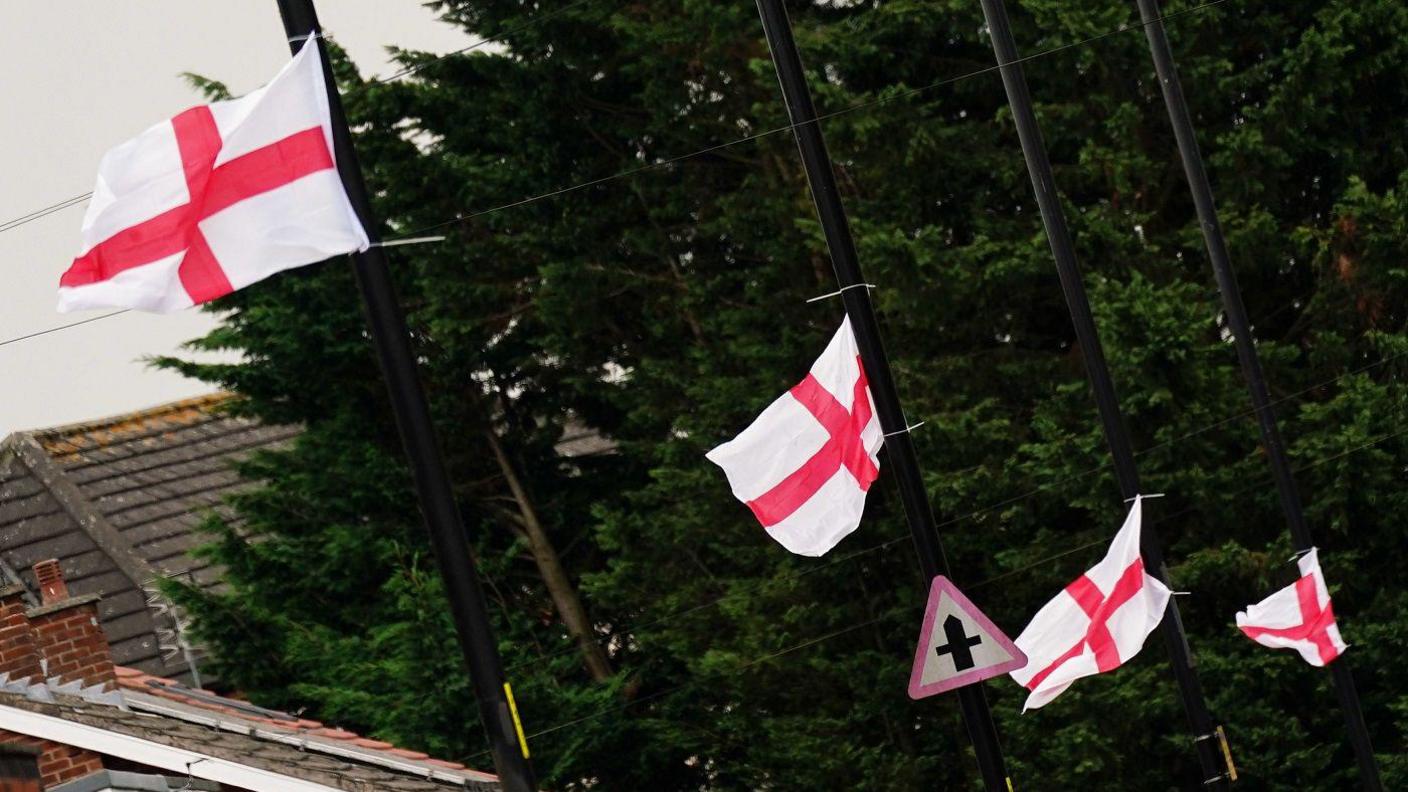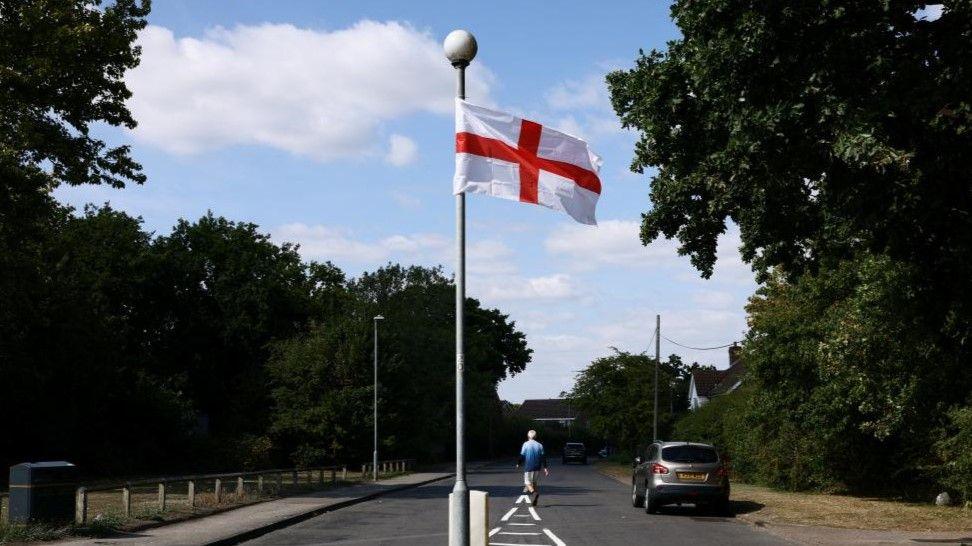The road where flags are sparking pride - and panic
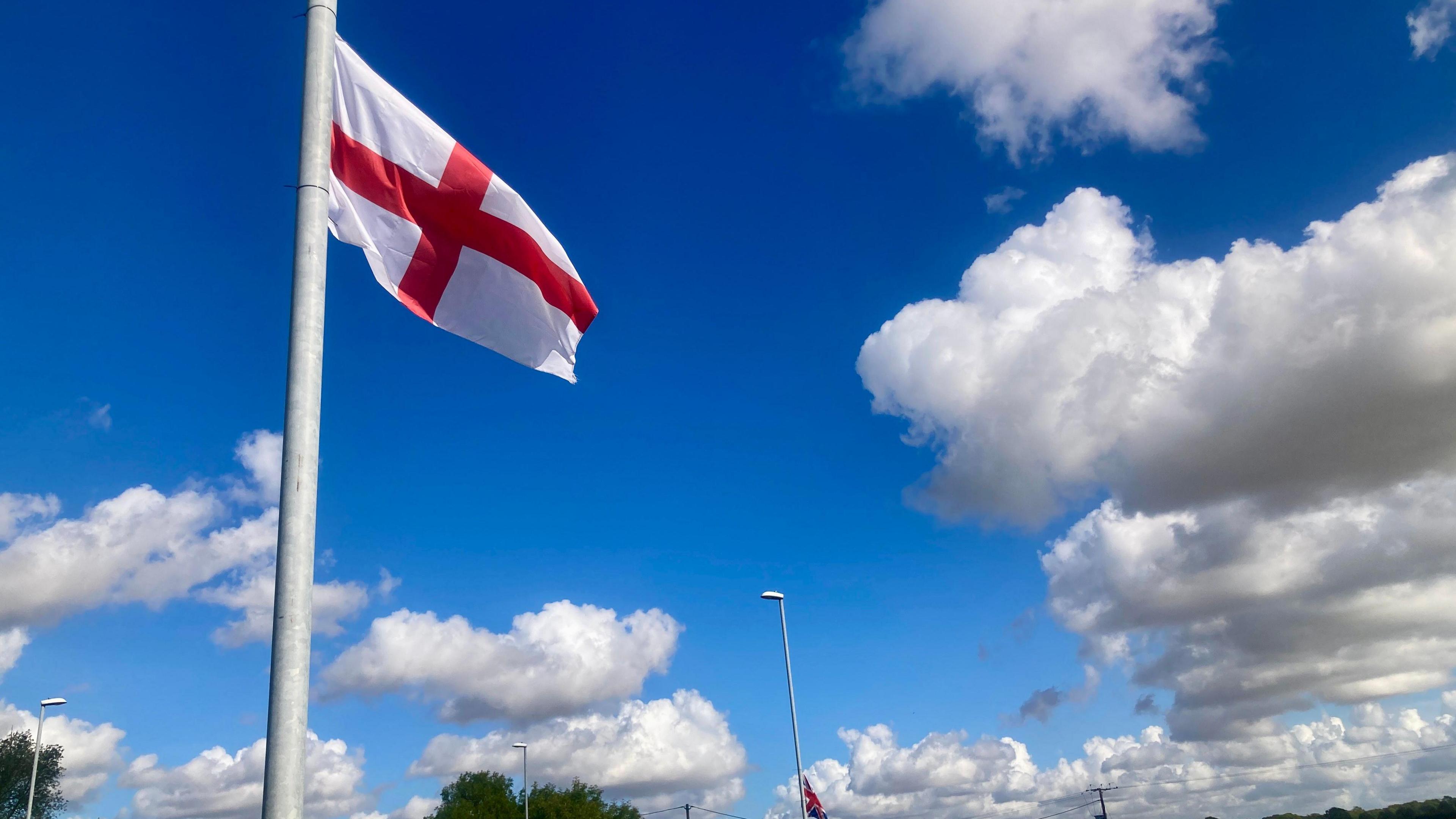
About 300 flags line the A1198 on the Cambridgeshire-Hertfordshire border
- Published
The road to Royston is not particularly long, winding or bumpy.
For five miles (8km), it stretches from the village of Arrington in Cambridgeshire to the Hertfordshire town, perhaps best known for its 13th-Century cave carvings.
But now, the A1198 is a road everyone locally is talking about because of the huge number of lampposts festooned with union jacks and St George's flags.
For some, it is the result of a wave of patriotism, but for restaurateur Akbar Hussain, a sign of something more troubling.
"We're a little bit panicky. We're a little bit worried about what it all means for us," he says.

Akbar Hussain says he's "a bit panicked" by the flags that have appeared on the road
His Indo-Nepalese restaurant, Yuva, has been in Bassingbourn, a small village just off the A1198, for over 18 years.
Local people, he says, have always been "welcoming and friendly".
Asked why he thinks the flags have gone up, he points to the recent protests against asylum-seeker hotels in Epping and London.
"There are so many demonstrations about migrants; attacking hotels," he says.
"People are worried about these people stealing their homes; too much spending on migrants. Maybe that's the meaning behind the flags."
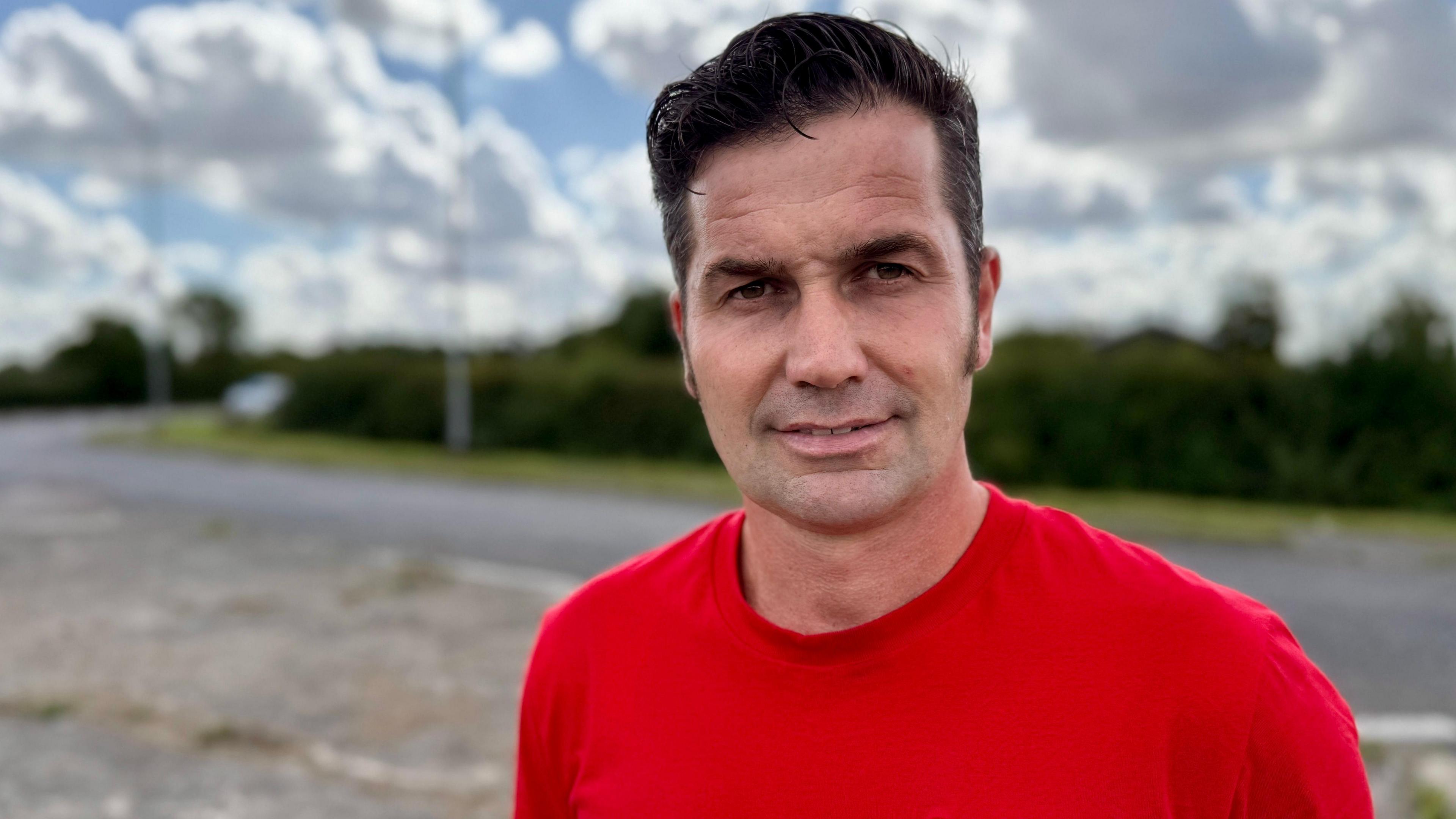
Billy Crotty has spent almost two weeks hanging flags along the A1198 and the villages that line the road
As we enter Arrington, we're approached by a car. The driver leans out of a window.
"I think you're looking for me," he says.
Billy Crotty, a tree surgeon, is the one-man band responsible for the near-300 flags that line the road.
Paid for initially out of his own pocket, almost £1,000 has been donated to help him buy more.
"We just wanted to make a stand for our country. We're proud to be English."
The reaction has been "99% positive", he says.
"We're constantly being beeped and cheered. A lot of people think it's a nice feature for the area."
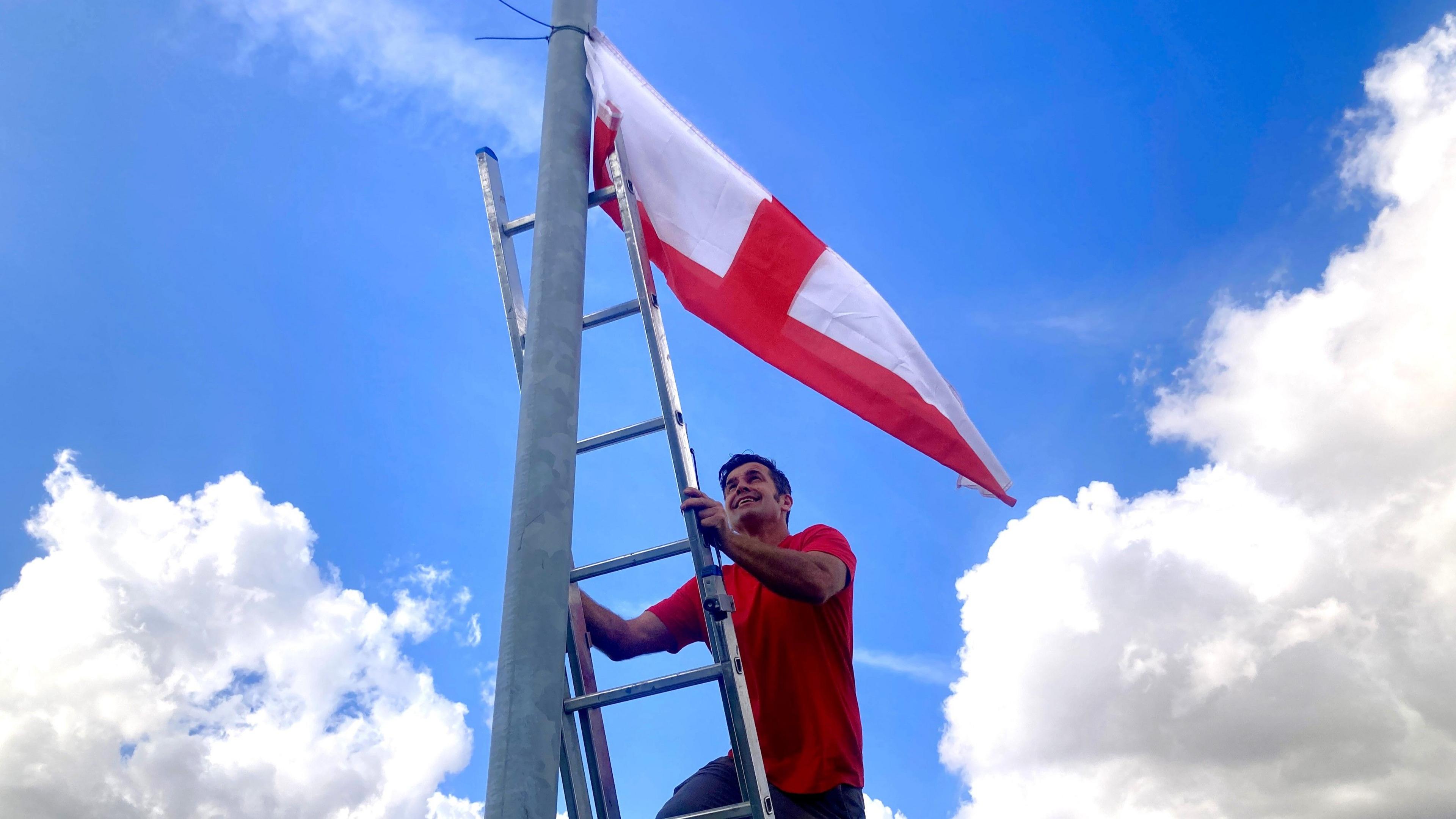
Mr Crotty has paid for many of the flags himself, but has received donations to buy more
He concedes, though, that some people find the flags "hateful".
"That's never our intention. We're not setting out to intimidate anyone," he says.
"But I'm going to be honest, there's a certain amount of it which is protest against illegal immigration.
"This country has been built on good immigration - I've got Sikh friends, an Irish grandfather - but we don't want unvetted people coming here. They could be terrorists; sexual offenders."
How does he feel about Mr Hussain being panicked by the flags?
"That's not great. We definitely don't want that. But it's just that we feel like we're the forgotten people."
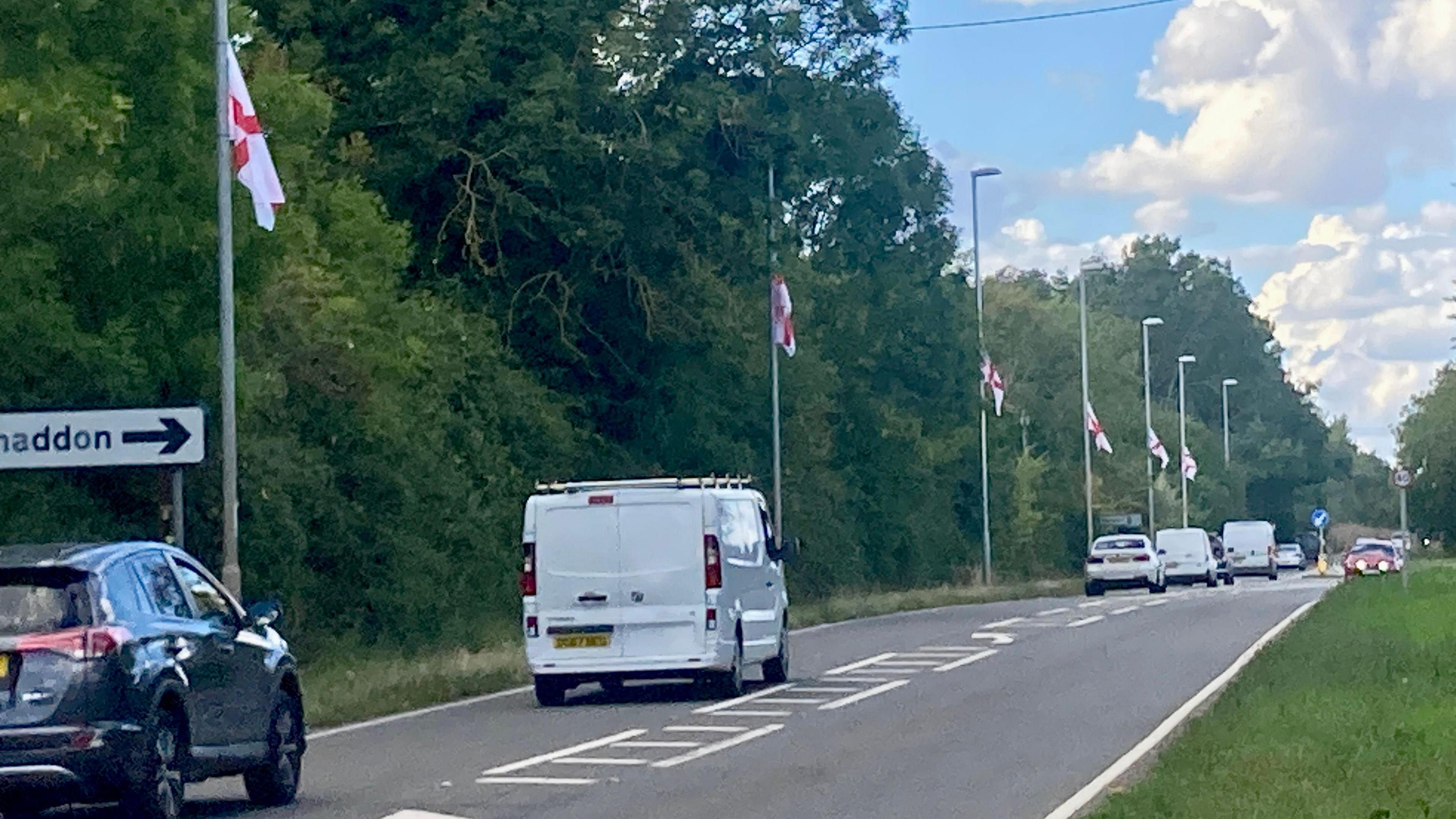
The five-mile (8km) stretch of road runs between Arrington and Royston
As we enter Royston, it's hard to miss the flags and not long before we find a house covered in union jacks.
"I love it, I absolutely love it," says its owner, who asks not to be identified. We will call him Mick.
Like many of the people we meet, he is proud to talk of his love of country, but rejects the label "far-right".
"If you ask me, it seems like this government puts British people second," he says.
"You see the Pride flags, which are great; no problem. You see the Palestinian flags; people are happy with that and that's no problem.
"But it seems anyone carrying a union jack or a St George's flag is labelled a far-right thug or a racist.
"It's nothing to do with that. It's just about being proud of your country."
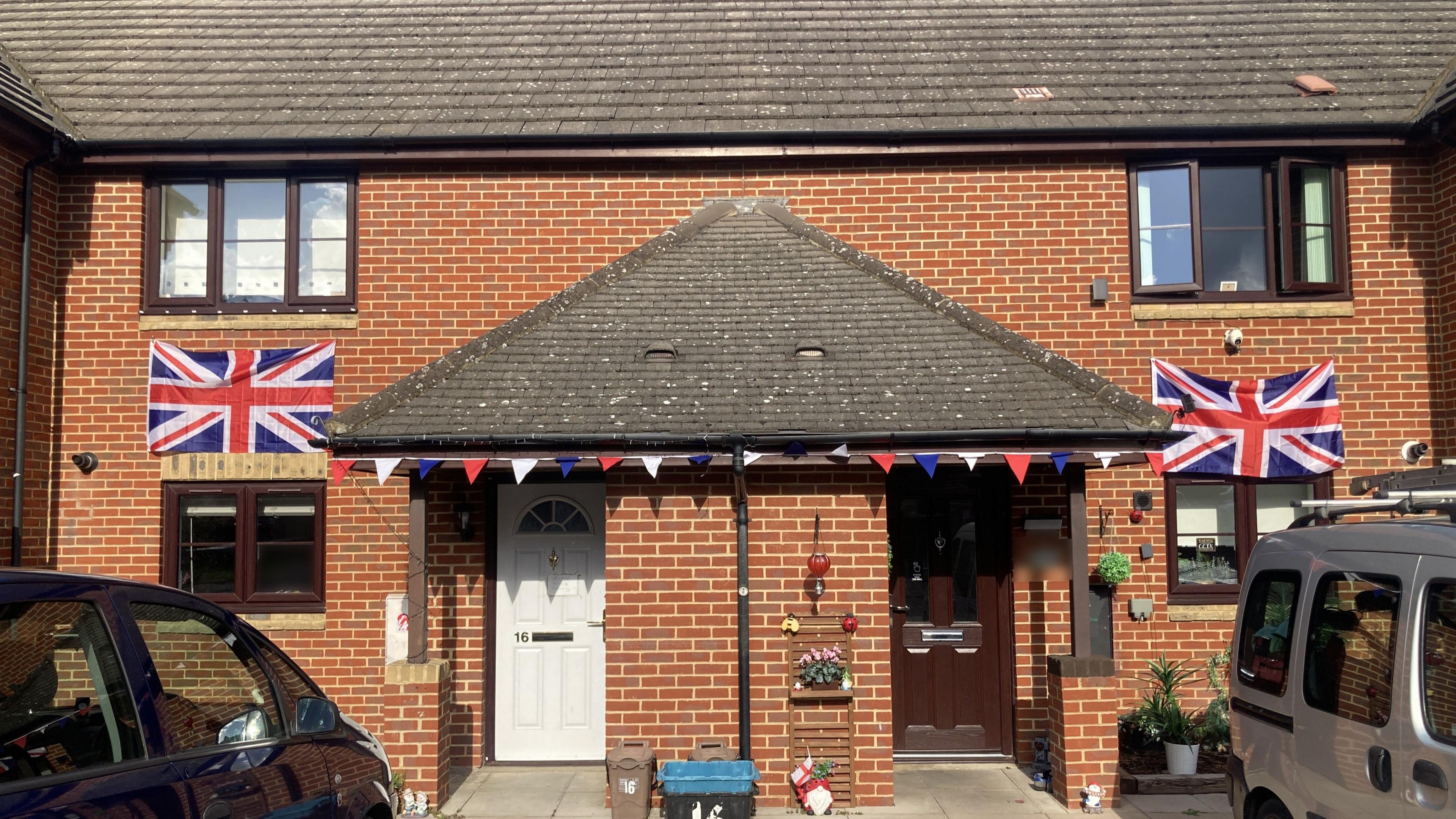
Some houses in Royston have been decorated with union jacks
St George's flags and union jacks have been going up in towns and cities across the country since mid-July.
What began as a response to a schoolgirl being barred from talking about her British roots has now become associated with protests against the housing of asylum-seekers in hotels.
As well as being flown during big sporting occasions, royal visits and military events, the national flags have also been linked with far-right movements including the English Defence League and the British National Party.
Yet there are many for whom the flags are a simple expression of patriotic pride.
In an interview with the BBC, Prime Minister Sir Keir Starmer said he was "very encouraging of flags" and proud of them as a "patriotic symbol of our nation", but that he didn't want them "devalued or belittled".
Councils across the country have taken different approaches to the appearance of flags on lampposts, and the painting of the St George's Cross on zebra crossings and mini-roundabouts.
Where acts of vandalism have been committed, or where tempers have flared, police have sometimes got involved.
They attended after reports of aggressive behaviour near a mosque in Dereham Road, Norwich, last week and, following reports of an altercation in the same road the following day, they revealed they had arrested a man on suspicion of assault.
East Hertfordshire District Council said it fully supported "positive patriotic behaviour", external, describing flags as "an important symbol of pride and unity".
But it added that where symbols were "used to intimidate or vandalise", the county council could consider taking them down.
Cambridgeshire County Council said it would monitor the situation, and remove graffiti and damage as part of its standard process.
In Royston, opinions on the flags are mixed.
Not everyone wants to speak candidly, worried about what friends or colleagues might think.
As the flags flutter in the late summer sunshine, almost everyone agrees the spectacle of seeing so many is hard to beat.
Born-and-bred Roystonian Sammy, who doesn't want to give her full name, says: "It was nice to see them. So long as there's no kind of unruly reason behind them, I think they're OK."
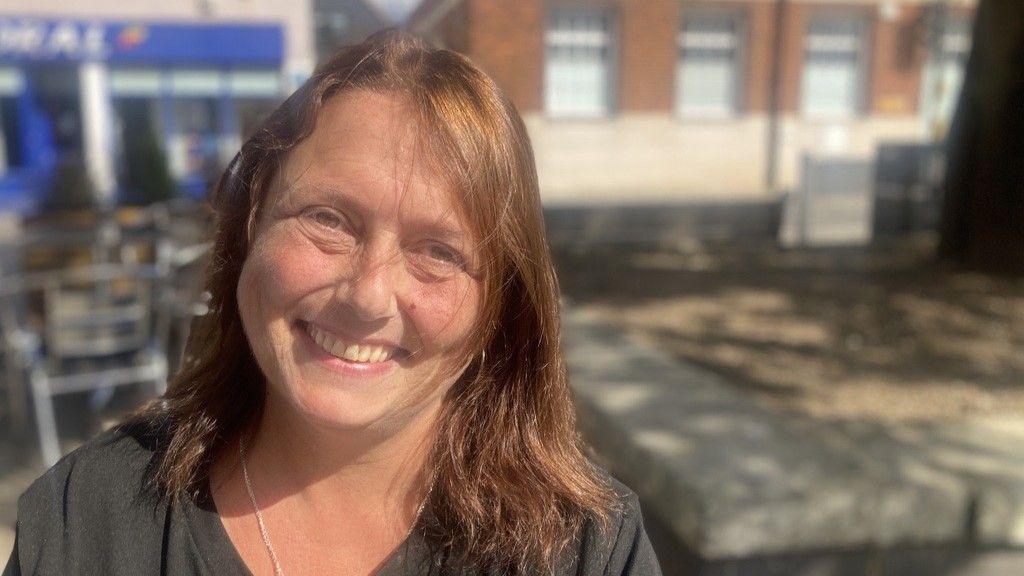
Sammy says she is happy to see the flags flying
But Graham Doctor, who is retired and visiting from Hatfield, says: "I think it's problematic.
"You don't have to fly the flag so blatantly. I can want the best for my country without waving a flag."
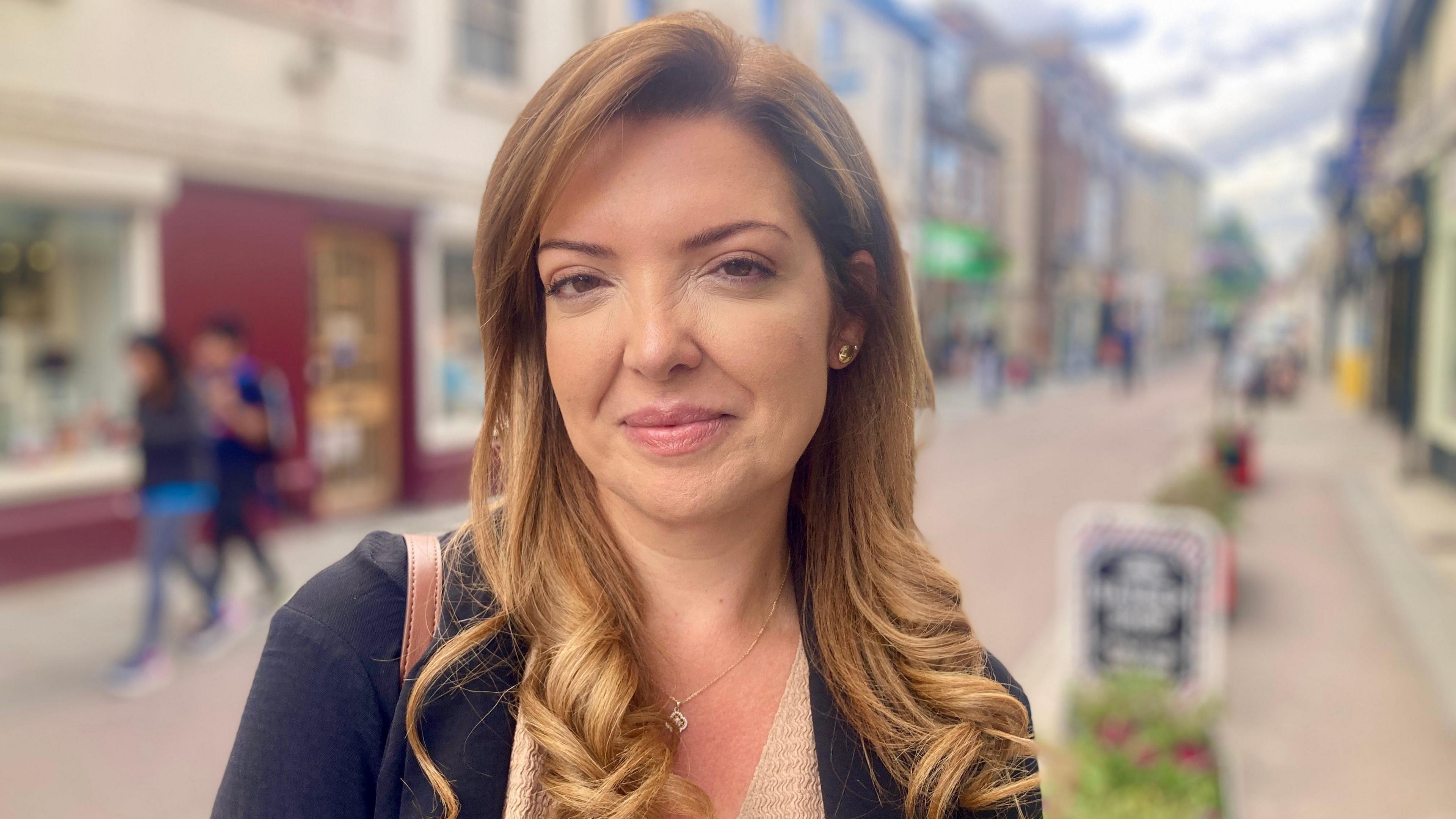
Gulchin Bayramova says she loves the union jack, but that seeing so many St George's flags around Royston has left her feeling intimidated
As we leave Royston, we meet Gulchin Bayramova, a baker.
Turkish by descent, she says she's "overwhelmed" by the number of flags dotted in and around the town centre.
"I saw them when we were driving in. There are so many in your face - it's shocking," she says.
"I feel a bit intimidated. It's not nice, but I know a lot of British people don't feel like that."
"The St George's flag has nothing to do with the European continent, because St George was a Turkish, Palestinian Greek saint."
"The British flag is a bit different because it's not associated with racism. That's a beautiful flag and I love it."
Get in touch
Do you have a story suggestion for Beds, Herts & Bucks?
Follow Beds, Herts and Bucks news on BBC Sounds, Facebook, external, Instagram, external and X, external.
Related topics
- Published30 August
